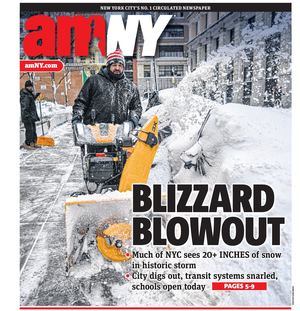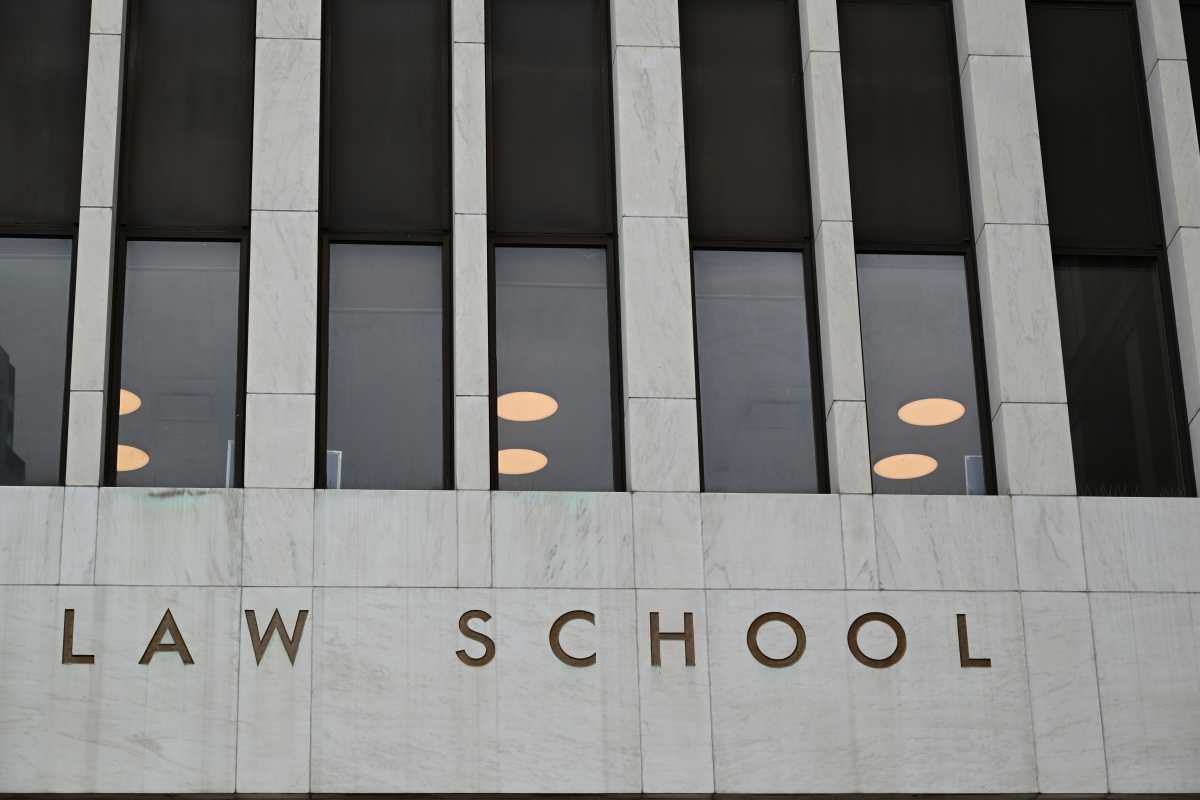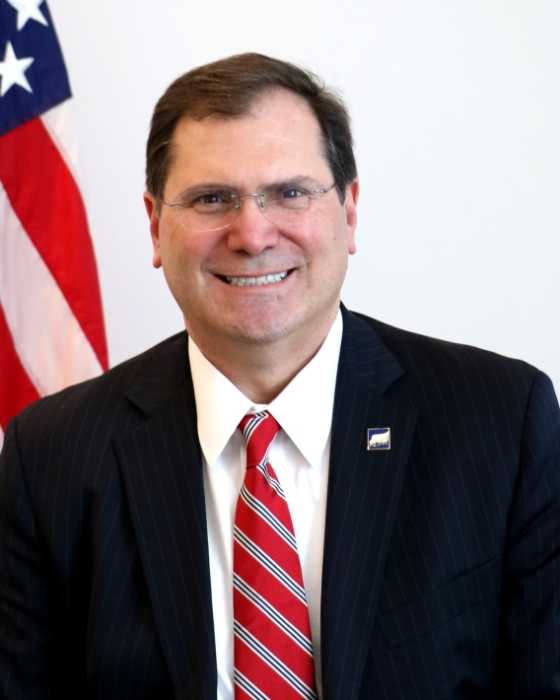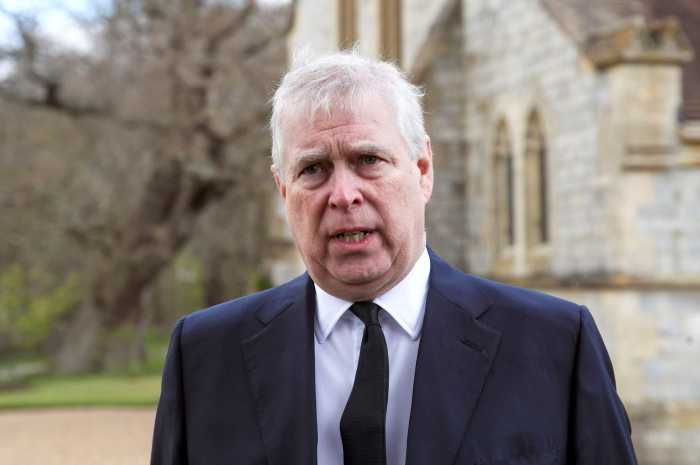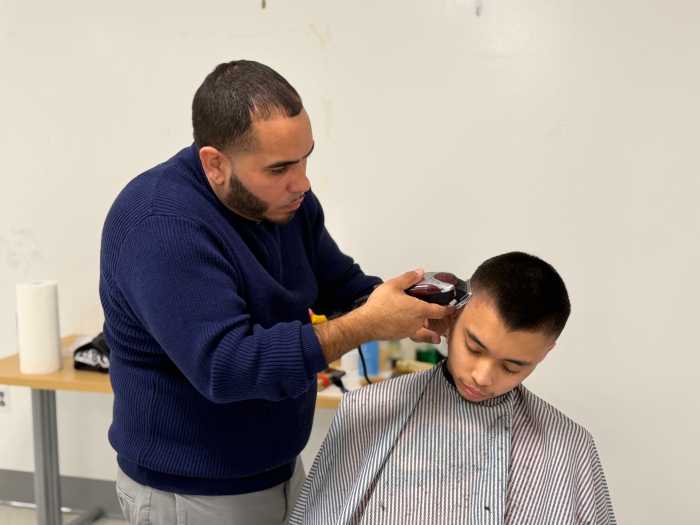The nation’s “charged political climate” has led to a surge in law school applications, inspiring a new generation of lawyers concerned about immigration, foreign policy and civil liberties.
A survey of more than 300 prospective law students by test prep provider Kaplan found that a majority cited the American political landscape as a major factor in their decision to apply — but less cited the 2024 election specifically.
“We’re seeing a spike in law school interest fueled by political engagement at a time when it’s almost inescapable to hear about or avoid conversations around politics. That’s clearly fueling additional interest,” said Amit Schlesinger, Kaplan’s executive director of legal and government programs.
More than 40% of students said they were affected by Donald Trump becoming president — with their goal being to safeguard legal institutions or go into politics to rebuild public trust.
“I am unsettled by the results of the 2024 presidential election, which influenced my decision to attend law school because I am afraid people will need to stand up for our rights in the near future,” one future law student wrote.
It’s been clear for months that law school application boomed after the election of Trump in November. As of May, the number of applicants is up nearly 20% from last year and 26% from 2023, according to the The Law School Admission Council (LSAC).
What remained to be explored is to what extent this was a direct result of Trump’s second term. Kaplan’s results reflect a more general sense of political unease. 53 percent say the current domestic political events impacted their decision to apply as of February, but only 42 percent of pre-law students specifically said the results of the 2024 presidential election factored into their decision to pursue law school. The rest said that the recent election did not affect their choice.
The increase in law school applicants is typical after an election year when volume usually does increase. But the results are more pronounced than 2016, where there was also a bump in applications. The LSAC found in 2017 that applicants to law schools had increased 14 percent compared to 2016.
Schlesinger added that “many aspiring lawyers aren’t just thinking about practicing law—they’re thinking about shaping policy, driving systemic change, and even running for office.”
In New York the application bump is even more profound. Applicants to New York Law School increased by over 30% since its last admissions cycle in 2023-2024.
The survey did not measure partisan leaning; and given that the survey was conducted in February, it did not fully capture the extent of the pushback that sectors of the legal profession have had to what some describe as attacks against the independence of the legal industry and judiciary.
Since Trump took office, his administration has failed to comply with court orders related to a range of issues, publicly railed against judges whose decisions he disagreed with and targeted corporate law firms with executive orders.
Some of these actions have ramped up since the survey, but in a range of written responses that Kaplan provided to amNY Law students, some of those who cited politics as a motivating factor said that they felt more lawyers are needed to stand up for the rule of law.
“I was relatively sure I didn’t want to go to grad school at all until I saw the results of the 2024 election and how many voters were tricked/lied to by their chosen candidate,” wrote one survey taker. “It’s important to me to fully understand the law so as to help others who may not have access to higher education like I do.”
Others said it bolstered a decision they would have made anyway.
“While I always wanted to go to law school and was going to apply regardless, the current political climate makes me want to try harder,” read one response
Others referenced political turbulence in speaking about their practical concerns over their checkbook and expected student loans.
“I am afraid of student aid and if that will be stripped from students due to the 2024 election outcome,” wrote one student. “Only economic factors impact my application approach,” said another.
Some framed their path to the legal profession as a direct stand against the Trump presidency and current political climate. One wrote that they were “mainly motivated by the attack on the U.S. Capitol in 2021 and my desire to safeguard and expand representative democracy. The election highly elevated the likelihood of me pursuing a joint degree program with a Canadian institution.”
The uncertainty for others acted as a deterrent rather than a rallying cry: “If anything, the tense political climate has made me want to go to law school less, but it has not fully deterred me.”
Another interesting element of the survey was the way it reflects how political points of view factor into education choices. 52 percent of respondents said it’s important for them to attend a law school where their fellow students generally share their political and social beliefs.
The surveys also showed that students think that law schools should be actively commenting on unfolding news. 64 percent believe that law schools should issue official statements about current events. This comes at a time when the White House has put pressure on higher education leaders to fall in line with its values and institutions are struggling with how to respond.
That sense of uncertainty is less true in parts of the Democratic stronghold of New York, however, where the State University of New York has joined legal challenges against the Trump administration’s attacks on education research funding and diversity practices in higher education.
“What is happening right now with respect to higher education is an existential threat,” Kapil Longani, senior vice chancellor and general counsel at the State University of New York (SUNY), recently told amNY Law. “We need to be ready to make strategic decisions where there are legal risks that are outweighed by the values at issue.”
